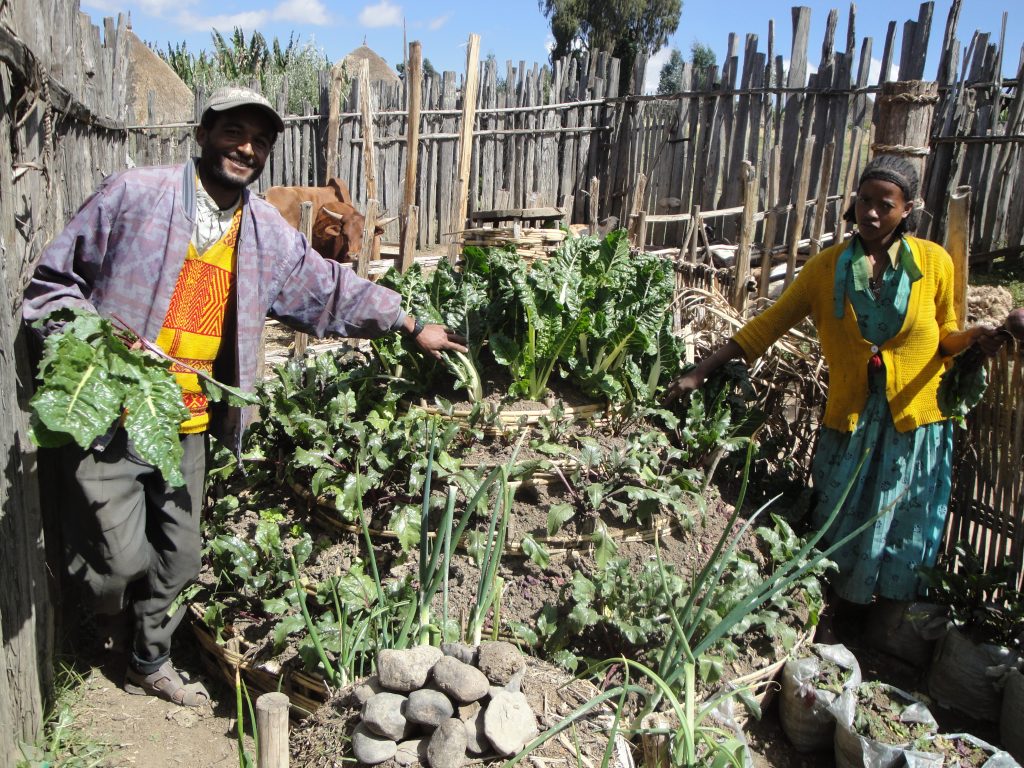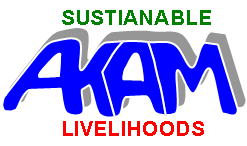Farmer Household Empowerment through Women (FHEW)
Rationale
Farmer Househol Empowerment through Women (FHEW) project, funded by the Send a Cow ETH/UK and Heifer Netherlands (July 2013 to June 2017) in five kebeless in Dendi District, West Shewa Zone of Oromia Region. In the project area, socially, women are always at a disadvantaged
position compared to men in access to and control over information, services, power, inputs and decision making. This is mainly due to cultural and religious customs that put them at a subordinated position. Women and girls have been socialized to accept harmful tradition practices that greatly disadvantage them. Girls are forced to fetch water, collect firewood, and help their mother in heavy household chores, which lead to psychological subordination, loss of self esteem, high school dropout rates and poor school performance. Addtionally, the project area is characterised
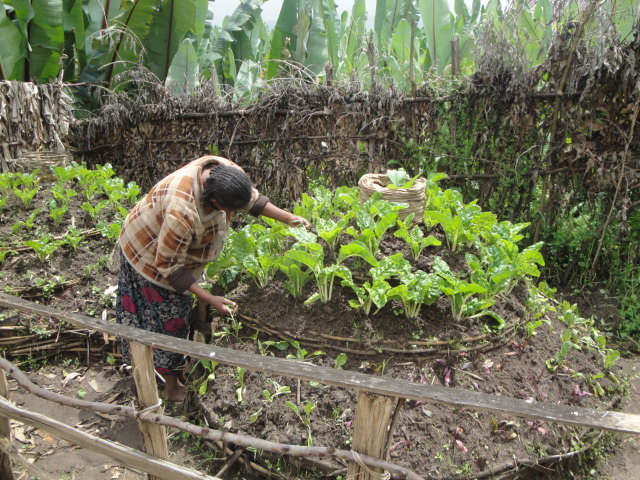
Progress and Results
According to participatory impact assessments:
- Improved number of meals: 29% and 71% of adults consumed meals twice and three times or on average 2.7 times during 24 hours before the assessment respectively in August 2017. The months August to October are usually characterised as severe food deficit months. Families reported that children under five years of age consume 3 to 4 meals a day.
- Reduction in food insecure months: 56% of SHG households reported fully food secure and 27% of the households reported they face food shortages for less than three months. 18% of the households reported that they experience food shortage for more than 3 months.
- Diet diversity: households consumed meals from more than 5 food groups increased from 2.1 days a week in August 2016 to 3.2 days a week in August 2017.
- Increase in household income: Average household income increased from Birr 4677 (€195) in FY 2015 to Birr 16,863 (€581) in FY2017.
- Formation of development groups: The number of the total number of project members are 1230 members (973 female and 257 male) organised in 66 SHGs. Female SHG members are 79%.
- Reduction of risk and workload on women: the proportion of husbands migrating out for seasonal employment has been reduced to 8% of husbands in 2016 (from 32% in 2015). This is mainly due to an increase in cash earning opportunity created by the project from sell of vegetables during cash deficit months particularly August to October.
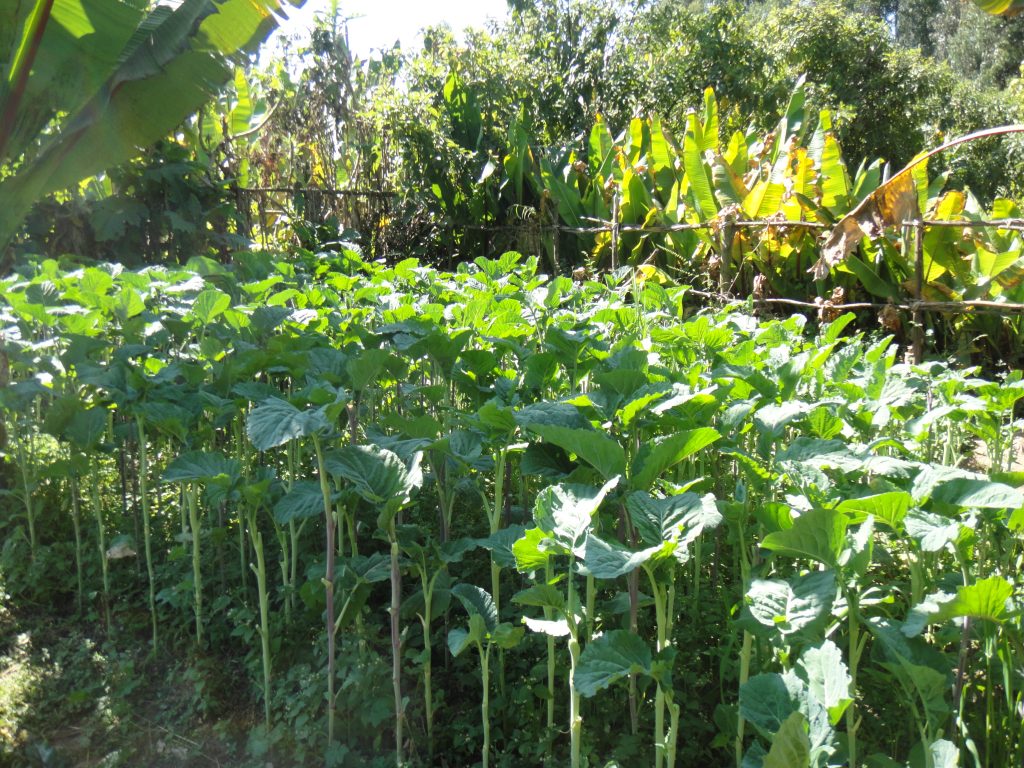
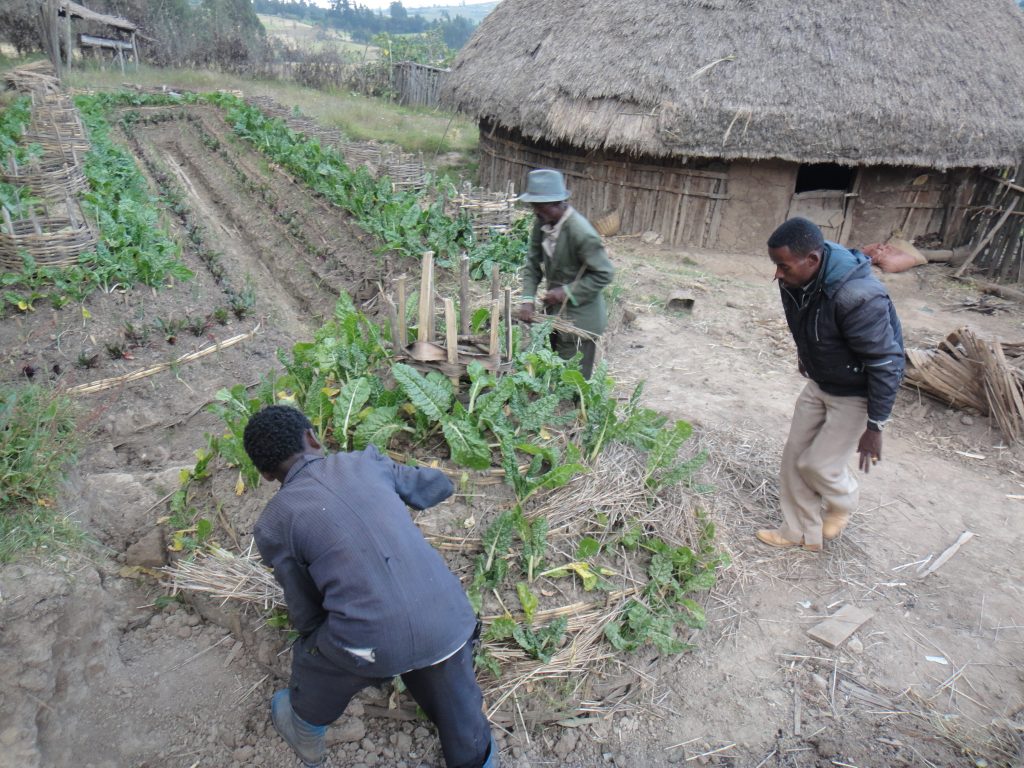
Testimonies
Before I came to the project, my family couldn’t have sufficient food to eat. My worry was in getting food for my family as for my livelihood I depend on a cow, an ox and my small backyard. The big thing I get from this project is the training I received on all the project packages including increasing agricultural productivity, saving, sanitation, animal management, etc. I am practicing the knowledge I have received and thus my livelihood status is changing.
I know of variety of vegetables introduced by the project but I was not sure of the suitability to the Kotoba environment. I used to plant only cabbage and beetroot though due to the practice I used to follow the land was less productive.
The knowledge I got on farm practices and farm diversification has now enabled me to increase my backyard productivity. I am able to cultivate variety of vegetables, spices, potato, maize, apple and fodder plants in more productive agricultural practices through using compost and proper cultural practices.
Now my family has sufficient and variety of food to eat; due to change in our nutrition, the family is in good health condition. I am able to increase my income by selling the surplus of farm produce which enhance my saving capacity and my ability to expend on off-farm activities.
Birhanu is the first modifier of Kitchen garden to Kotoba garden…
Since I have small plot of land, I wanted to benefit more by constructing two kitchen garden in my compound which are circular in shape side by side but then I noticed that I could have make use of the space in between and thus Kotoba garden that is rectangular is innovated. These gardens are highly beneficial especially during the dry season which is easy to manage by using waste water and kitchen wastes as a compost and thus to produce vegetables for home consumption and to generate income. The vegetables during the dry season are very expensive and I have earned around ETB 1,400 last year only from these gardens by selling the surplus from home consumption.
The project has established 56 FOMDALS (Farmer-owned and managed demonstration and action learning sites). This agricultural extension system, has contributed to increased farmer to farmer learning and agricultural productivity. These are demonstration farms owned and managed by project participants who have shown excellence in implementing the training received and advises provided by project facilitators. They will use their own farms for training, supporting and mentoring other group members and people from the community.
Birhanu is one of the FOMDALS……
Hundreds of members and non-members have visited my farm so far. Since I have also constructed family well in my backyard last year, I am planning to cultivate vegetables during this summer in my backyard and provide training at least to all SHG leaders.
Birhanu’s Plan…
The project has enabled me to be food secure, to increase my livestock asset and increase income and saving among others. I am planning to contract a land to expand my farming practice. Within two years time I am planning to construct Corrugated iron sheet house and in the long run, I envision constructing a hotel in Kotoba.
Birhanu Sori-Hunde Gudina Self-help Group, Tirange Shube Kebele, Dendi
